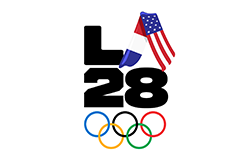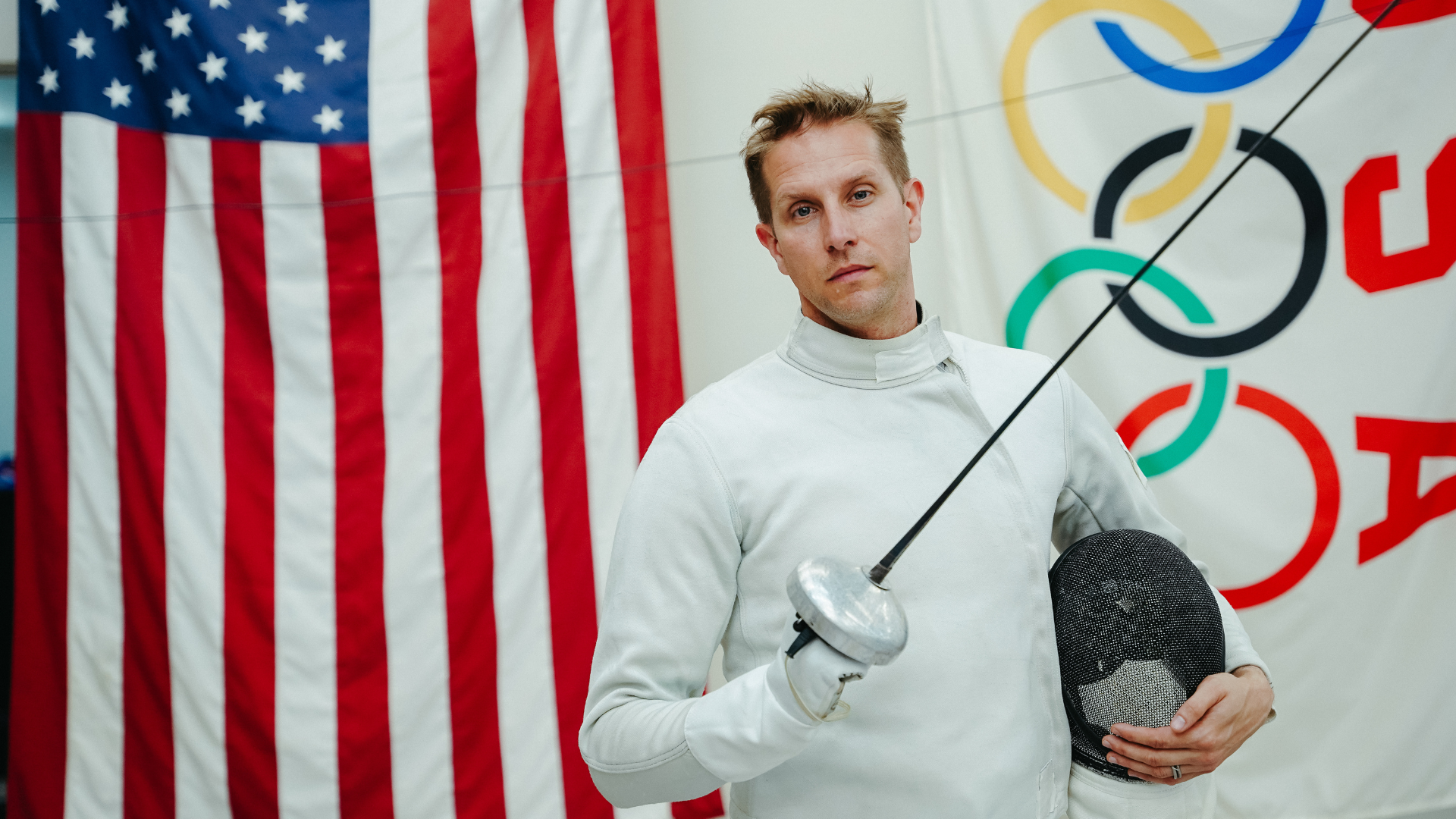OLYMPIAN TO LA28 SENIOR TECHNOLOGY ASSOCIATE:
MEET FENCER CODY MATTERN
Qualifying for an Olympic Games is anything but ordinary, and Team USA fencer Cody Mattern’s journey is no exception. When asked how he got started in the sport, many are surprised to learn that he was adopted twice and didn’t even begin fencing until age 15.
It started with an intriguing debate with his adopted brother during a Central Oregon road trip regarding who would win in a fight between a musketeer and a samurai. The debate ignited a curiosity that led Cody to take up the sport, “Once I found a place to fence, I fell in love with it and the rest is history,” Cody said.

Standing at 6’4”, Cody embodies the stature of an elite fencer. As his skills improved, he became more focused and knew that fencing’s objective-based rules would allow him to continue training, regardless of where life took him. “I wanted to get better, which was kind of my M.O. (modus operandi). I wanted to improve at something, figure it out and put in the extra time. That's what I love about fencing. You adjust and you grow as fast as you're able to innovate,” Cody explained.
His Olympic journey was not without challenges. Along the way, a bicycle accident combined with years of grueling training and travel to qualify for the Games tested Cody’s determination.

When attempting to qualify in 2004, Cody hadn’t earned the points needed to make his Olympic berth until the last qualifying event before the Games. "I didn't believe it. It honestly didn't soak in. I was on the plane going to Athens. I was at the Parthenon. I knew I was in Greece for the Olympics, and I still didn’t believe it,” Cody said. “I didn't really see it until I came home and stepped off the plane. I'm like, okay, now I've done it, I'm an Olympian, I competed in the Olympic Games.”
After retiring from competitive fencing, Cody found a new sense of purpose in being an advocate for athletes' rights. He served on the Team USA Athletes’ Commission for over 12 years, where he championed the importance of athlete representation. “There needs to be a voice for athletes and there needs to be balance,” Cody said. "How can any sports organization benefit athletes without the voices of athletes? Athletes must feel that they have a safe place to bring forward their concerns, questions, things they are liking and also safely share what sporting governing bodies are lacking."

In recent years, Cody has developed a passion for adaptive sports and regularly plays wheelchair basketball. He became involved in disability awareness and advocacy as a wheelchair fencing coach and recognizes the need for a stronger voice for athletes with disabilities.
“When I was an athlete representative, I had to represent not just my sport of men's fencing but also the women's side and the adaptive side,” Cody said. “So, I became much more aware of all these other aspects and voiced that, because a lot of times it's just the athletes with disabilities speaking up, but it needs to be everyone.”

In 2021, Cody learned about the LA28 Olympic and Paralympic Fellowship program, a new and unique opportunity to contribute to the Games and support athletes’ voices. During his first six-month rotation with the Technology team, he worked on email and data platform migration, all while sharing his unique perspective as an Olympic athlete to his work at LA28.
“Cody has been a breath of fresh air,” said his manager, Senior Technology Director Lauren Stern. “He is never afraid to ask why, challenge norms or dive deeper into any topic. He is both a quick learner and excellent coach and educator, making him a crucial part of our agile and ever-changing Tech team.”

Cody was hired as a full-time employee through the Athlete Fellowship program and has been promoted twice. He is now a Senior Associate at LA28. “It's been two years since I started as an Athlete Fellow and now, I primarily work with new technologies, integration, education, change management and user adoption,” Cody said.
His dedication to athletes is felt by the people Cody works alongside, including his manager, Lauren. “No matter where he is providing input, Cody always puts the needs of Paralympians and Olympians at top of mind,” Lauren shared.

The Athlete Fellow program has evolved drastically since the first cohort was welcomed more than two years ago. Cody, as the first, but not the last, full-time hire to come out of the program, is proud of how it has evolved. Athlete Fellow Alumni like himself help guide new ones, leading to smoother transitions and accelerated learning curves for athletes transitioning into careers, often for the first time.
Looking ahead, Cody envisions himself contributing to the LA28 Technology Team through 2028 and, hopefully, one day applying the lessons learned and innovations made at LA28 to future Olympic & Paralympic Games.
Cody's story is one of resilience, determination and a commitment to driving positive change in the world of sports. From a young fencing enthusiast to Olympian, then Veteran to Athlete Representative and now Athlete Fellow to LA28 employee, Cody has left an enduring legacy that goes beyond his achievements on the fencing strip. He is a true exemplar of what it means to be an athlete advocate and an integral part of the Olympic & Paralympic Movement.
“The biggest thing that fencing has taught me is about ups and downs, to enjoy the ride even when the journey doesn’t go perfectly. When you commit yourself to a path, sometimes it's going to be bumpy, but you follow the path all the way to the end, to its completion. That dedication is the thing that I took from my sport experiences,” Cody said.
---
To watch the interview with Cody, please visit the LA28 YouTube Channel.

